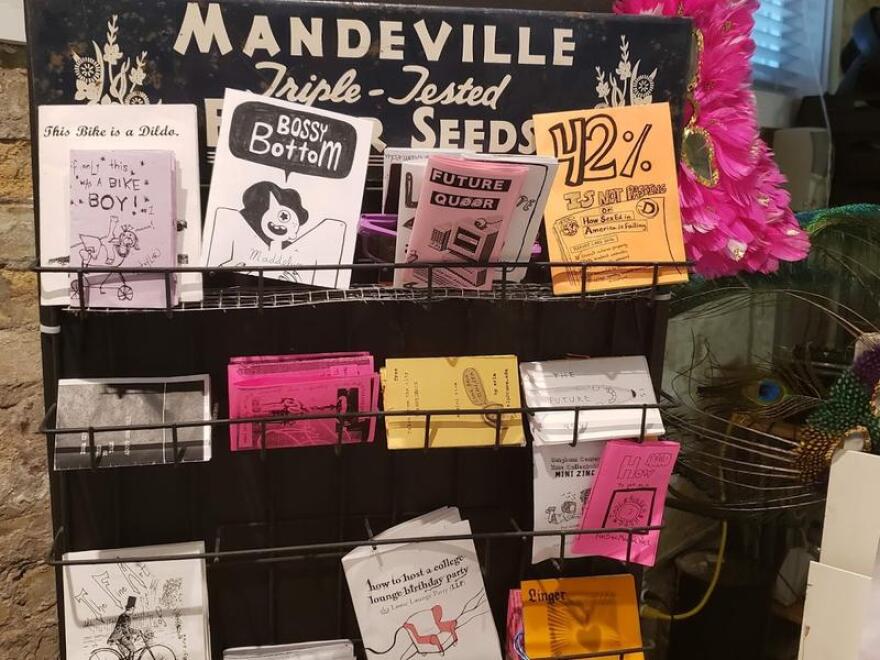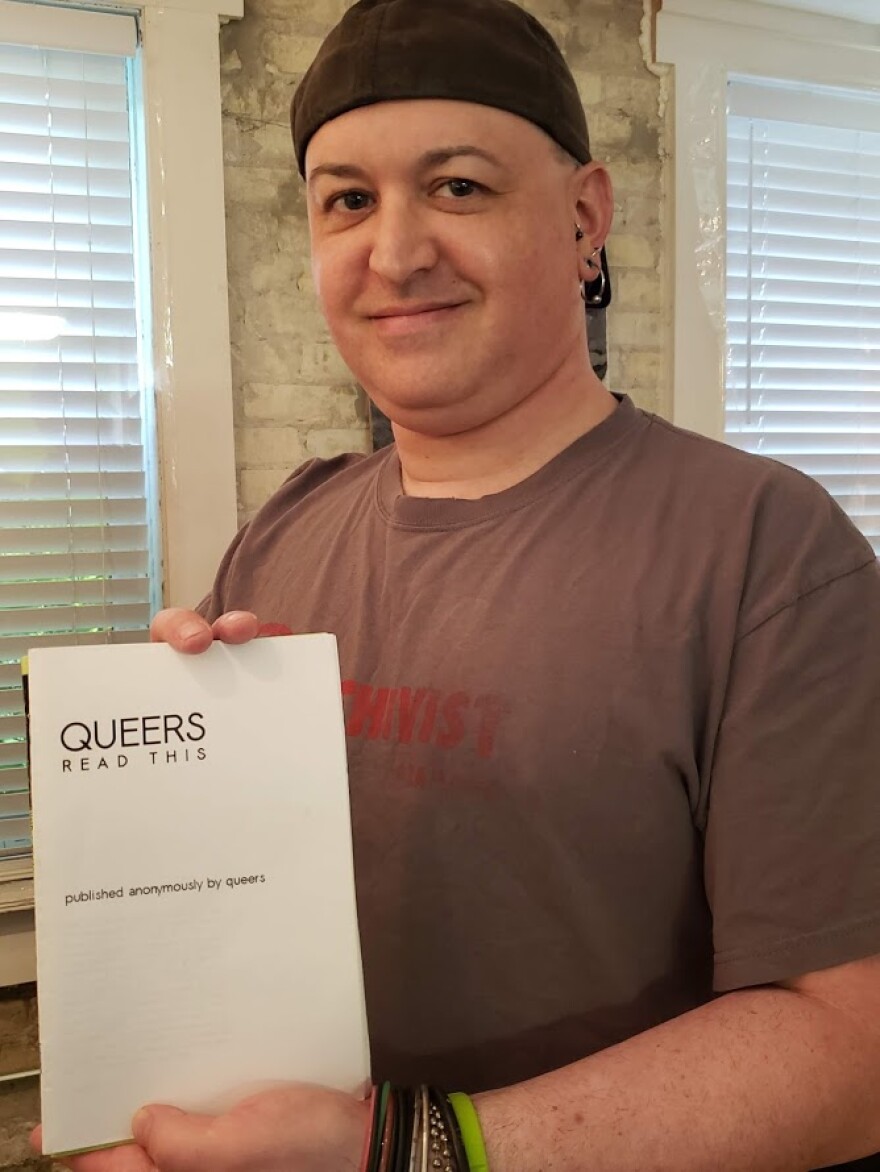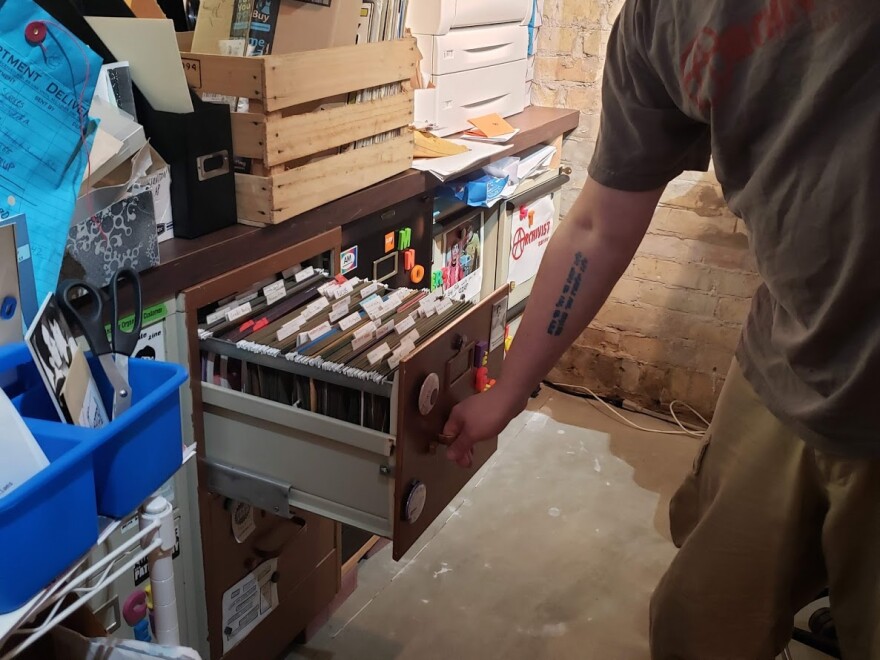There's a special archive that's been curated in Milwaukee’s Riverwest neighborhood for the past 15 years: the Queer Zine Archive Project (QZAP). Zines are typically small, self-published magazines with a limited circulation, covering certain topics or communities. The zines in the Riverwest archive are written by LGBTQ folks or focus on a wide variety of LGBT issues.


Milo Miller is one of the co-founders of QZAP. Milo prefers to be referred to by the pronoun "they." At the Riverwest flat, they showed off some of the zines in the collection, including one published in the 1990s by a group of rock music fans called the Gay Metal Society.
Miller says the Chicago-based group "a newsletter of guys who were super into metal, and they talk about going to big concerts and hanging out in the parking lot and smoking pot and picking up guys, just as much as a straight metalhead would do," they explain.
Miller says it’s important to preserve zines like this because the Gay Metal Society helped shatter misconceptions about gay men and music.
"This is not a story that you would see in music press," Miller says. "If you looked at music press at the time, Rolling Stone or Spin, they’re not going to talk about a group of gay metalheads."
Miller says some of the zines in the collection date back to the early 1970s.

Archive co-founder Chris Wilde says the collection provides a window into major events in modern history — like the 1990 Gay Pride March in New York City, and gatherings of activist communities like those who occupied Wall Street.
"I’m a historian by education, and to me the primary documents and the things people create themselves to mark their own time in the world are the most powerful historical documents of all," he says.
Miller adds that the collection also houses zines filled with do-it-yourself information or silly subjects.
"We have a zine that is one of my favorites called 'Interview with a Zombie,' zines about how to fix your bicycle tires," they say. "We have a bunch of cook zines, which are basically cookbooks but in zine format, how to make vegan mac n’ cheese or whatever.”

Today, the Queer Zine Archive Project has more than 2,500 zines and an international reputation. But the big collection had a humble start — in Miller and Wilde's Riverwest flat.
Wilde explains, "What started off as a desk in the corner of our dining room ended up with then two file cabinets, became four file cabinets, became five file cabinets. Imagine that in a 10-by-15 foot dining room."
Wilde says as the collection grew, the couple moved it to a vacant apartment downstairs. They renovated the space to include the archives, a study area and fold-out futon sleeping quarters. Wilde says visitors from all over the country have stayed there, helping to maintain the archive or doing research about the collection.
He jokes about how the QZAP residency is different from others, "a lot of archives typically are: you sit in a room and people bring things to you from Hollinger boxes, and they make you put on white gloves. Here, we’re almost the opposite, maybe a sequined-gloved archive, where we invite people to just be themselves and be comfortable."

While zines date back to the 1970s, they exploded in the 1980s and ‘90s. They were big in the punk scene and the feminist "Riot grrrl" movement. Miller says after the internet revolution of the past few decades, zine-sharing evolved. In part, that’s because the web made it easier for like-minded people to connect. Also, some places that distributed zines – like record stores and independent bookstores – closed their doors.
But Miller says Milwaukee still has a zine scene, and they and Wilde continue to collect them from all over the world.



